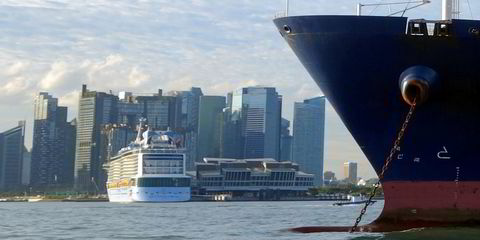Star Bulk Carriers, an owner and operator of 127 ships, reported on Monday an improvement in last year’s environmental performance.
Its environmental, social and governance report shows that the Athens company reduced the average fleet annual efficiency ratio — which measures CO2 emissions per dwt-mile — to 3.29 from 3.43 in the previous year, following the application of technical and operational measures.
That brings the reading back close to its 2020 levels.
Complying with new Global Reporting Initiative 2021 requirements, Star Bulk said it has identified and prioritised “both … positive and negative impacts towards the environment, people, and the economy”.
As part of these efforts, it has become the first Greek-based dry bulk shipping company to measure and report Scope 3 emissions (those that it does not control but that are part of a process to bring goods to market) generated across its entire value chain.
Star Bulk’s Scope 3 emissions for last year were assessed at 777,242 tonnes of CO2. No retroactively estimated Scope 3 values were reported for the previous years.
That compares with 2.75m tonnes of Scope 1 emissions, which measure direct emissions from the fleet, as well as 525 tonnes of Scope 2 emissions generated by the company’s onshore and offshore electricity consumption.
The vast majority of the 777,242 tonnes of Star Bulk’s Scope 3 reading come from well-to-tank emissions, namely fuel produced to power its vessels.
Fuel consumption, as well as SOx and NOx emissions, fell considerably in 2022, following completion of a huge installation programme of scrubbers across the fleet.
As this programme wound down, capital expenditure on green infrastructure dropped to $24.1m from $32.2m in 2021.
The company started spending on energy-saving devices instead, to the tune of $4.5m, up from zero in 2021.
Star Bulk ships carried about 72m tonnes of cargo over 7.2m nautical miles (13.3m kilometres) in 100 countries and made nearly 3,000 port calls. The countries its ships visited most were China (409 port calls), Singapore (276) and India (264).
Forty-two per cent of its shore employees are women — the same proportion as in 2021 and up from 41% in 2020. It has also implemented a voluntary one-day work-from-home policy for office employees.
Star Bulk furthermore participates in a green corridor to help it assess supply, demand and bunkering of clean ammonia for the iron ore trade between west Australia and East Asia.






